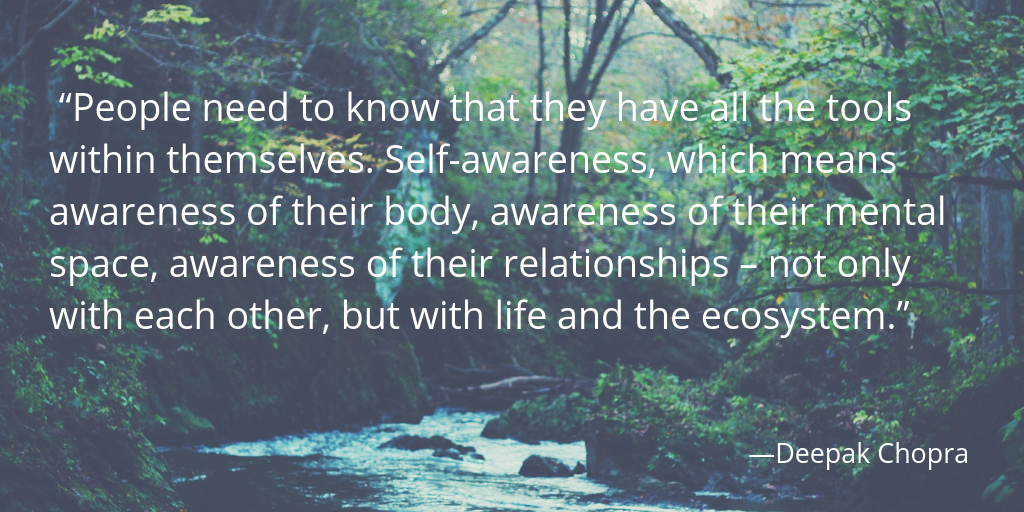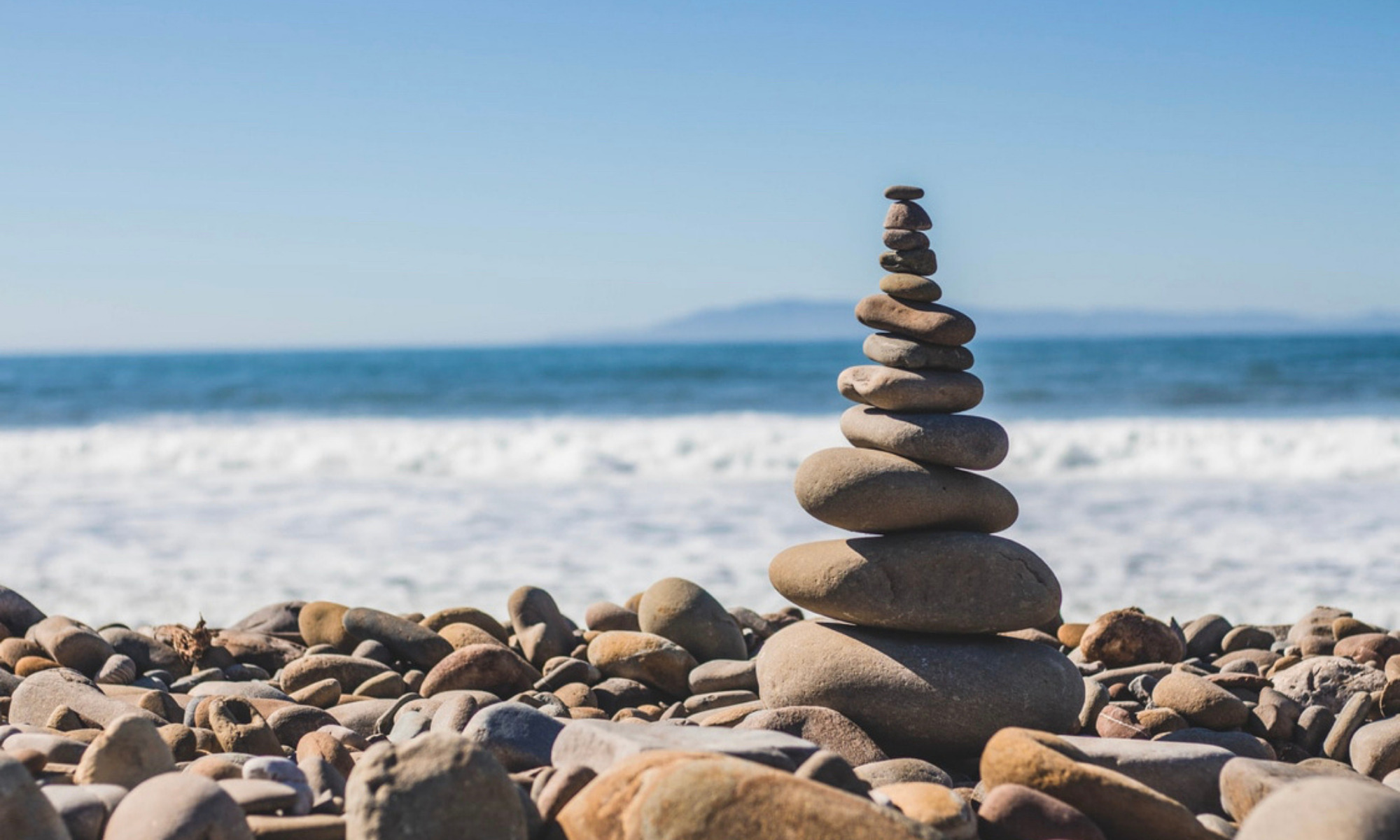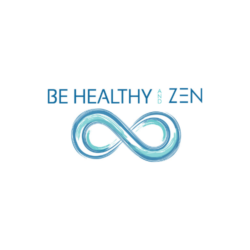What exactly does it mean to be self-aware?
Being self-aware means being conscious of the thoughts within your mind, the space around you and the effect you have on people around you.

Why spend a day being self-aware?
Self-awareness seems like a simple enough task but it can actually be quite challenging and does require practice. Spend an entire self-awareness day to experience what it’s like to be present in every moment and be ok with it. Remind yourself to come back every time your thoughts start spiraling. Notice the calmness that takes over as you become conscious of yourself. In the days that follow, you will recognize when you start to wander and you can bring yourself back to the present.
Awareness of your mind – Introspection
The first thing you want to be aware of is your mind. Introspection is defined as the examination of one’s own conscious thoughts and feelings. People often ignore or are not even aware of their thoughts.
Spend time each day listening to what is going on in your mind. It’s sometimes easier to drown your thoughts out with distractions like watching TV, working, busyness or even other people’s problems. At the end of the day, your thoughts are still with you. Listen and acknowledge them. The more you are able to do so, the better you’ll be able to process your thoughts and move forward through them.
Notice when you have something on your mind…when the thoughts of a situation are overwhelming and all-consuming. Listen to the thoughts you are having…
- Do you notice a pattern?
- Do the thoughts repeat themselves over and over?
- How much time are you spending on one single thought or a series of thoughts?
Make a mental note or even write down the thoughts you are having. By breaking them down in this way, you can begin to look at it from an outside view and potentially come up with a solution.
Here are some questions to ask yourself in order to process through what’s going on in your mind:
- What is this thought trying to tell me?
- Did someone influence this thought?
- Do I believe this thought?
- Is this thought helpful or just a distraction?
- Is there any action I need to take on this thought?
- What does this thought bring me to next?
Take responsibility for your thoughts. You are in control.

Body Awareness – Proprioception
Proprioception is the sense of the relative position of one’s own parts of the body and strength of effort being employed in movement. It is also referred to as the “sixth sense”.
Awareness of your physical presence includes not only your body, but your energetic field, the vibe you put out to the world. Body awareness is important for physical well-being and also as another form of consciousness that impacts yourself and your surroundings.
Turn off your thoughts for a moment and experience only your physical presence. How does it feel?
- Light?
- Heavy?
- Comfortable?
- Awkward?
- Painful?
- Crooked?
- Flexible?
- What does it feel like to move slowly?
- What does the energy associated with it feel like?
Have you ever been to a concert, positioned yourself in the perfect space for watching the show and out of nowhere, the tallest person in the crowd comes out of nowhere and stands directly in front of you, blocking your view?
Have you had days that you seem to constantly be tripping on or running into other people?
Don’t be that person! Be aware of your self and your effect on others around you.

Awareness in Relationships with Others
Self-awareness in your relationships with people means being aware of how your story, emotions and actions impact the people in your life.
Everything you’ve been through in life shows up in your relationships. How you were treated in the past by a parent or a partner results in how you currently respond to a situation. You may have triggers that you automatically respond to without thinking. Recognizing your response will allow you to stop and readjust in a more productive way.
Imagine yourself in an argument where you want to come to an amicable solution. Think about the energy you are putting out as this will likely affect the outcome. Are you listening and open or are you just trying to be right? This can be sensed in your posture. Your posture might put out a sense of confidence or it may put out a sense of weakness. Know what your position is and adjust it if necessary.
Knowing yourself better will help to build deeper, more meaningful relationships.
Benefits of Self-Awareness
Self awareness allows us to observe how we react to external stimuli or situations. Our response is created from our internal mental processing. Being self-aware of the process allows one to choose how to respond vs being reactive.
- You’ll begin to recognize your thoughts as they happen and therefore be able to choose how you respond to them.
- Self-awareness brings one into the present moment, decreasing anxiety by staying present, letting go of worry, regret and blame.
- Self-awareness = responsibility
- Understand others and how they perceive you
- Opportunity to make positive changes in oneself

Self-awareness empowers you to take control of your life. You are the one directing your li
fe and your thoughts rather than being controlled and
dictated by them. Spend the day focusing on th
e present moment, your thoughts, your actions, your surroundings, your impact on everything and everyone around you…and you’ll never look at life the same way again.
What do you think? Are you willing to spend more time being self-aware? Give a self-awareness day a try and then let me know how you did!
Your zen friend,
Sheree

